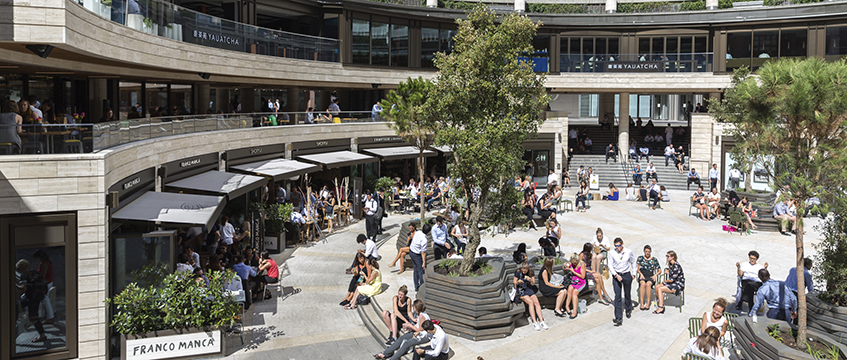British Land has posted a fall in net asset value and portfolio value in its 2018-2019 half-year results amid a “challenging” retail market.
The property developer also confirmed it had sold or placed under offer £634m of retail assets in the past 12 months. Since 2014, the company has sold a total of £2.8bn of retail assets.
During the six months to 30 September the company’s portfolio value fell by 1.9% to £12.9bn as its NAV per share dropped 2.9% to 939p. Its loan-to-value ratio dropped by nearly two percentage points to 26.7%. Diluted earnings per share fell by 10.4% to 17.2p.
Chief executive Chris Grigg said: “In a particularly challenging retail market, we remained focused on delivering operationally day-to-day while at the same time progressing our strategy and refining our portfolio…We remain thoughtful in our capital allocation, extending our share buyback after selling 5 Broadgate at book value. At the same time, we again reduced leverage so we are well placed to further progress the strategic initiatives we set out in May to build an increasingly mixed use business.
“Looking forward, demand for the highest quality London office space is expected to continue, but we remain alert to potential uncertainties as the Brexit process unfolds. We expect retail to remain challenging in both the occupier and investment markets as the impact of long-term structural change is compounded by short-term headwinds.”
In an analyst call, Grigg said that in five to 10 years, British Land aimed to become a “specialist in mixed-use spaces”. He added: “We will deliver a smaller, more focused retail portfolio. We are prepared to accept discounts [for sales] where it makes sense. We still believe physical retail plays an important role but it will be a smaller part.”
British Land’s current portfolio is split nearly 50:50 between retail and campus-focused offices. In five plus years, this split will be 30-35% versus 50-55%, respectively. The company’s residential portfolio is expected to increase significantly to take a 10% share with its flexible workspace brand, Storey, rising to 5%.
Retail takes its toll
By sector, retail weighed most heavily on the company’s portfolio value, dropping 4.5% in value. In contrast, the office division edged up 0.7% as development increased by 7.2%.
Alan Carter, managing director and analyst at Stifel, said: “[The results are a] more realistic reflection of the increasing travails of the retail property market. A 4.5% write down outweighing a decent performance from the London office assets is simply another sign of where retail property is heading.
“The London office assets are doing well and the campus-oriented assets at Broadgate, Euston, and Paddington all offer to a greater or lesser extent the notion of turning office factories into a 24-hour mix of work and leisure.
“The problem is retail, which is no surprise. Both British Land and Landsec make much of the sales that have been made of so-called secondary assets over the past five years, but the fact remains that in percentage terms both still own too much of it.”
To send feedback, e-mail anna.ward@egi.co.uk or tweet @annaroxelana or @estatesgazette











